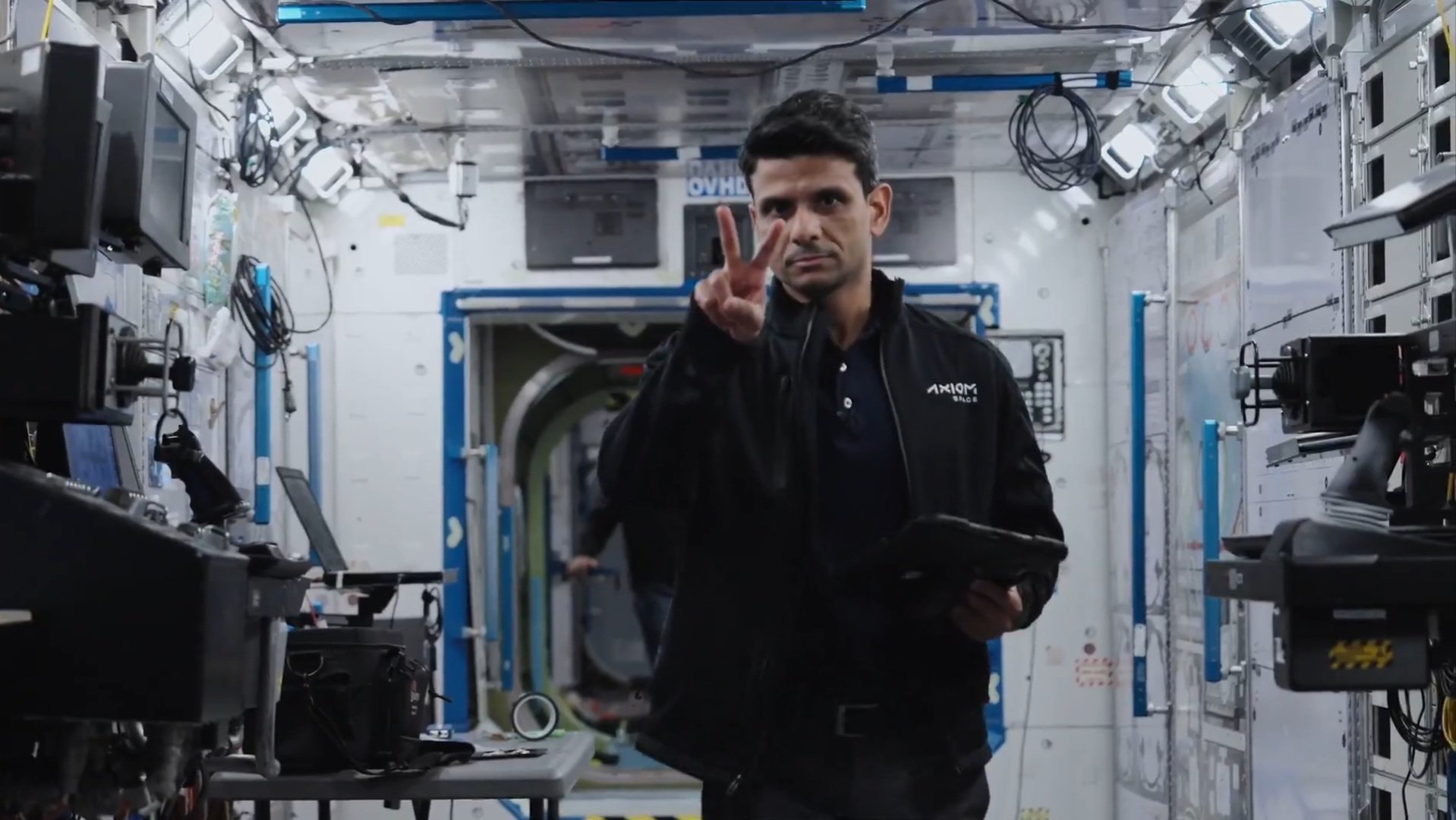Sitting on the verge of making history, Indian Air Force Group Caption and ISRO astronaut, Shubhanshu Shukla, is carrying carrot halwa, moong dal halwa and mango nectar with him on way to the International Space Station (ISS) to satiate his cravings for home-made food in space, and distribute some among fellow astronauts too.
Shukla will become only the second Indian in space – and first on the orbiting laboratory – after Rakesh Sharma in 1984.
The SpaceX Falcon 9 launch carrying Shukla and three other astronauts marks India’s debut on a private astronaut mission, with a focus on deep scientific research in micro-gravity.
While astronauts are usually advised to travel light, Shukla is carrying some mouth-watering Indian sweets with him.
“There will be plenty of food in space, but I will carry mango nectar, gajar (carrot) ka halwa, and moong dal halwa with me” to share it with fellow astronauts aboard the ISS, he said at a media conference before the Axiom-4 mission took off on Wednesday.
Shukla is also carrying a secret souvenir for Rakesh Sharma, a gesture of gratitude toward the man who mentored him through mission preparation.
During the 14-day stay at the ISS, the crew will conduct around 60 scientific studies and commercial activities in microgravity representing 31 countries, including the US, India, Poland, Hungary, Saudi Arabia, Brazil, Nigeria, UAE, and nations across Europe.
Shukla will partake in experiments aimed to advance the technologies to build Axiom’s own space station, and the effect of microgravity on cyanobacteria – a type of bacteria that has an anaerobic pathway.
The bacteria – capable of converting carbon dioxide to oxygen – was also responsible for the generation of oxygen on Earth.
“Cyanobacteria are being studied to see how well they can perform the activity in microgravity and the possibility of utilising them for future missions to provide an environment, an oxygen-rich environment for the crew who is going to stay,” Shukla told IANS, during an exclusive interview in March.
The experiment will analyse the growth rate, cellular responses, and biochemical activities of two types of cyanobacteria (water-based bacteria that photosynthesise) in microgravity. These bacteria could be useful in spacecraft environmental control systems.
The IAF Group Captain is also set to conduct exclusive food and nutrition-related experiments onboard the ISS.
The experiments – developed under a collaboration between the Indian Space Research Organization (ISRO) and the Department of Biotechnology (DBT), with support from NASA – aim to pioneer space nutrition and self-sustaining life support systems vital for future long-duration space travel.
His experiments will also examine the impact of microgravity and space radiation on edible microalgae – a high-potential, nutrient-rich food source.
Shukla will study the growth of sprouts and edible microalgae, which could be a sustainable food production solution in space.
The experiments also include studying physical, cognitive, and physiological responses in space, as well as the effects of continuous electronic display use in microgravity — an important consideration for future long-duration missions.
The Lucknow-born astronaut will also investigate skeletal muscle dysfunction in microgravity and test possible therapeutic strategies to counter its effects.
In addition, he will perform experiments involving extremophiles like Tardigrades, tiny organisms known for surviving extreme conditions.
Shukla will expose six types of crop seeds to microgravity conditions in space, which will later be cultivated on Earth to study genetic changes, microbial load, and nutritional value. The experiment is crucial for decoding the potential of future space farming.
These experiments are expected to expand understanding of how life might sustain itself beyond Earth and are vital for developing sustainable life support systems in space.
The targeted docking time at the orbiting laboratory is approximately 4.30 pm (Indian standard time) on June 26.
(IANS)














